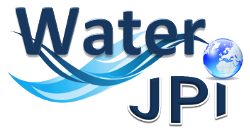CONTACT
Consequences of antimicrobials and antiparasitics administration in fish farming for aquatic ecosystems.
|
|
|
|
|
Project coordinator: Michael SCHLOTER German Research Center for Environmental Health (HMGU) - Germany Communication contact: Baerbel FOESEL - baerbel.foesel(at)helmholtz-muenchen.de |
||
| Partners: | ||
| Dr Gisle Vestergaard |
Technical University of Denmark, Institute for |
Denmark |
| Prof. Susanne Rath |
University of Campinas; Institute for Analytical |
Brazil |
| Prof. Timothy M. Vogel |
École Centrale de Lyon / Université de Lyon; |
France |
| Dr Lior Guttman |
The National Center for Mariculture, Microbiology and Water Quality (IOLR) |
Israel |
Abstract
Aquaculture is an important source for food, nutrition, income and livelihood for millions of people around the globe. Intensive fish farming is often associated with pathogen outbreaks and therefore high amounts of veterinary drugs are used worldwide.
As in many other environments, mostly application of antimicrobials triggers the development of (multi)resistant microbiota. This process might be fostered by co-selection as a consequence of the additional use of antiparasitics. Usage of antimicrobials in aquaculture does not only affect the cultured fish species but – to a so far unknown extent - also aquatic ecosystems connected to fish farms including microbiota from water and sediment as well as its eukaryotes. Effects include increases in the number of (multi)resistant microbes, as well as complete shifts in microbial community structure and function. This dysbiosis might have pronounced consequences for the functioning
of aquatic ecosystems.
Thus in the frame of this project, we want to study the consequences of antimicrobial/-parasitic application in aquaculture for the cultured fish species as well as for the aquatic environments. To consider the variability of aquaculture practices worldwide four showcases representing typical systems from the tropics, the Mediterranean and the temperate zone will be studied including freshwater and marine environments. For one showcase a targeted mitigation approach to reduce the impact on aquatic ecosystems will be tested.
WP structure
Six working packages have been defined which includes project management (WP1) and dissemination (WP6), as well as assessment of residue kinetics of the administered drugs (WP2), effects of the applied compounds for fish associated microbiomes (WP3); consequences of the administered drugs for non target biota in aquatic ecosystems (WP4) and the use of biofilters as a possible mitigation strategy (WP5).
|
WP number |
Led by |
WP number |
Led by |
||
| WP1 |
HMGU |
WP4 | ECL | ||
| WP2 | UNICAMP | WP5 | IOLR | ||
| WP3 | DTU | WP6 | HMGU | ||
Expected research results
- Impact of administered antibiotics and antiparasitics for the microbiome and health of selected fish species in aquaculture
- Impact of administered antibiotics and antiparasitics for the microbiome and health of non-target biota from aquatic ecosystems
- Data on the microbiome of selected fish species
- Description of mitigation strategies including the use of biofilters
- Training in microbiome analysis
—
For more details on the work plan and expected impact of the project consult the AquaticPollutants booklet.
—
Keywords: Aquaculture; Antibiotics; Antiparasitics; Microbiome; Antibiotic Resistance


